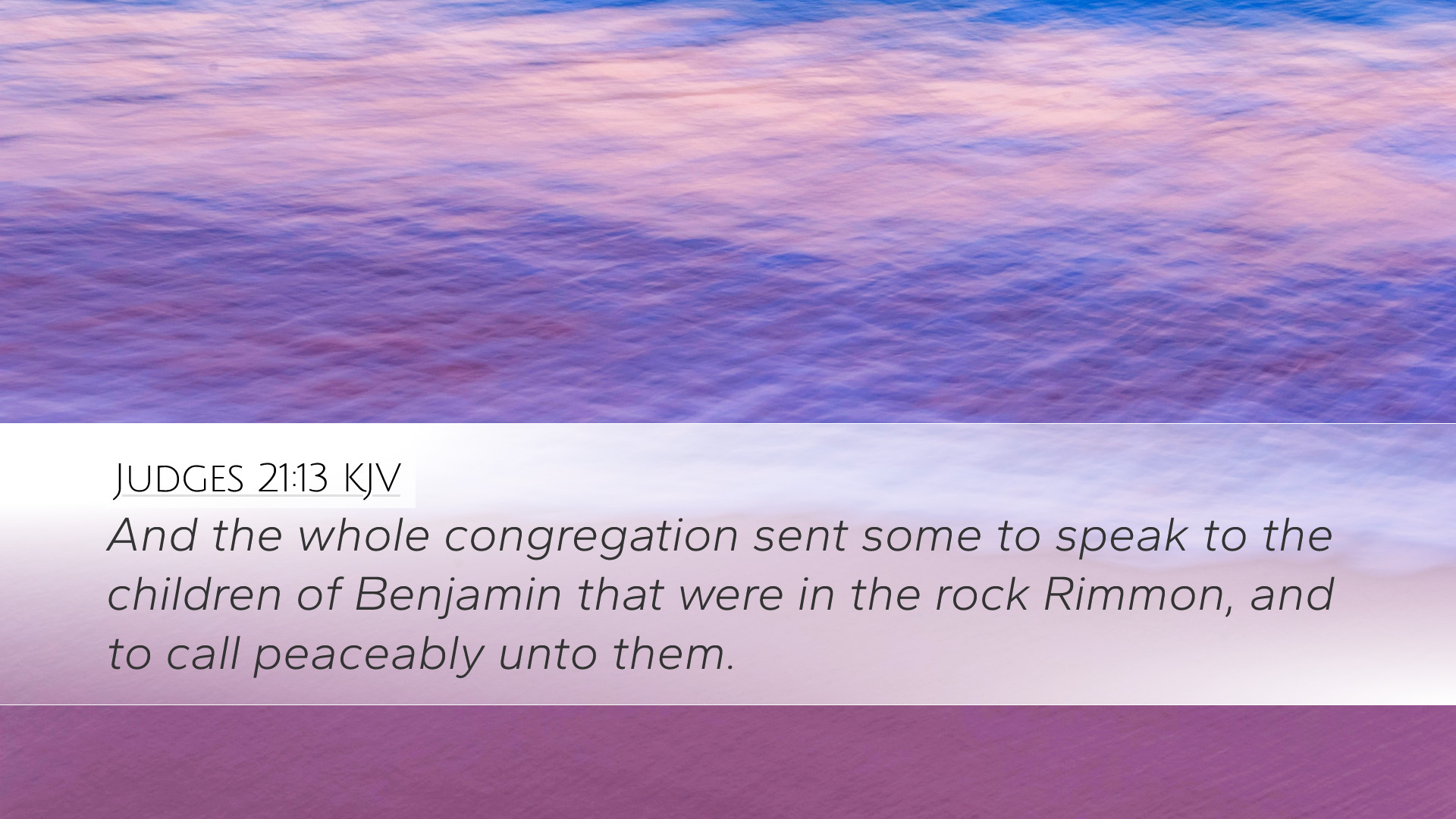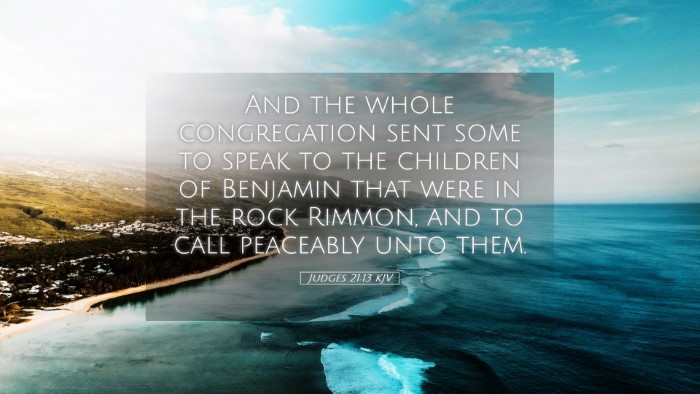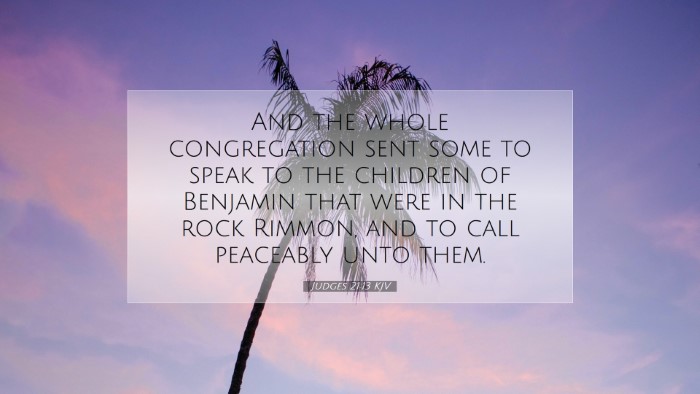Commentary on Judges 21:13
Judges 21:13 states: "And the whole congregation sent some to speak to the children of Benjamin who were at the rock of Rimmon, and to proclaim peace unto them."
This verse concludes the tragic narrative of the tribe of Benjamin following the brutal incident at Gibeah. Here, we will explore the theological implications and the historical context using insights from various public domain commentaries.
Contextual Overview
The Book of Judges depicts a time of moral and social upheaval in Israel. After the civil war against the tribe of Benjamin, which led to significant loss of life and societal disruption, the Israelites sought to reconcile and restore peace with Benjamin. This process of reconciliation is critical, as it showcases the themes of conflict, guilt, and restoration, essential to understanding God's covenant relationship with His people.
The Plea for Peace
Albert Barnes emphasizes the importance of this diplomatic action taken by the Israelite assembly. They realized the necessity of maintaining unity among the tribes, particularly after the disastrous events that had transpired. In their effort to restore peace, they sought out the remnants of Benjamin, demonstrating that no tribe should be wholly cast out.
Matthew Henry provides insight into the implications of this verse regarding the character of God’s people. He notes that the act of sending messengers to Benjamin signified a desire for forgiveness and reconciliation, reflecting God's nature as a peacemaker. The call to peace underscores the importance of humility and the need for restoration over vengeance.
Historical and Cultural Implications
Adam Clarke comments on the historical significance of the "rock of Rimmon," a place that would have been recognized for its refuge qualities. This emphasizes that the Benjaminites were not only in physical hiding but were also in a state of despair, having been marginalized and nearly obliterated. The gathering at Rimmon represented both a literal and metaphorical place of isolation, indicating their need for reintroduction to the community.
Covenant Community and the Importance of Reconciliation
The Israelites' actions mirror the covenantal nature of their relationship with God. The urgency to regain Benjamin as part of their collective identity highlights the theme of restoration found throughout Scripture. As Barnes notes, this desire for unity reflects a foreboding awareness of the consequences that division could have on the nation as a whole.
Theological Reflections
This passage can be viewed as an embodiment of God's redemptive plan. The invitation to Benjamin provides a foreshadowing of the New Testament's inclusivity in Christ. As the church today is called to embody reconciliation, this story serves as a model for how communities can regain lost members, underscoring the significance of grace and forgiveness.
- Unity in Diversity: This scenario paints a picture of diverse tribes coming together under a common identity as God's people.
- Grace Over Judgment: The willingness of Israel to reach out symbolizes God's grace, emphasizing that forgiveness is available even after severe transgressions.
- The Role of Mediators: The messengers symbolize the necessary intermediaries in healing relationships, which is reminiscent of Christ's role as the ultimate mediator.
Conclusion
Judges 21:13 is not merely a historical recount of events but a deep reflection on the nature of community, the transformative power of reconciliation, and the hope found in restoration through God's covenantal love. As humanity continues to navigate divisions, this passage challenges pastors, students, theologians, and scholars to embrace the call for peace, unity, and grace. The efforts to restore Benjamin are a reminder that God's purpose often exceeds human frailty and leads to hope—even amidst despair.


